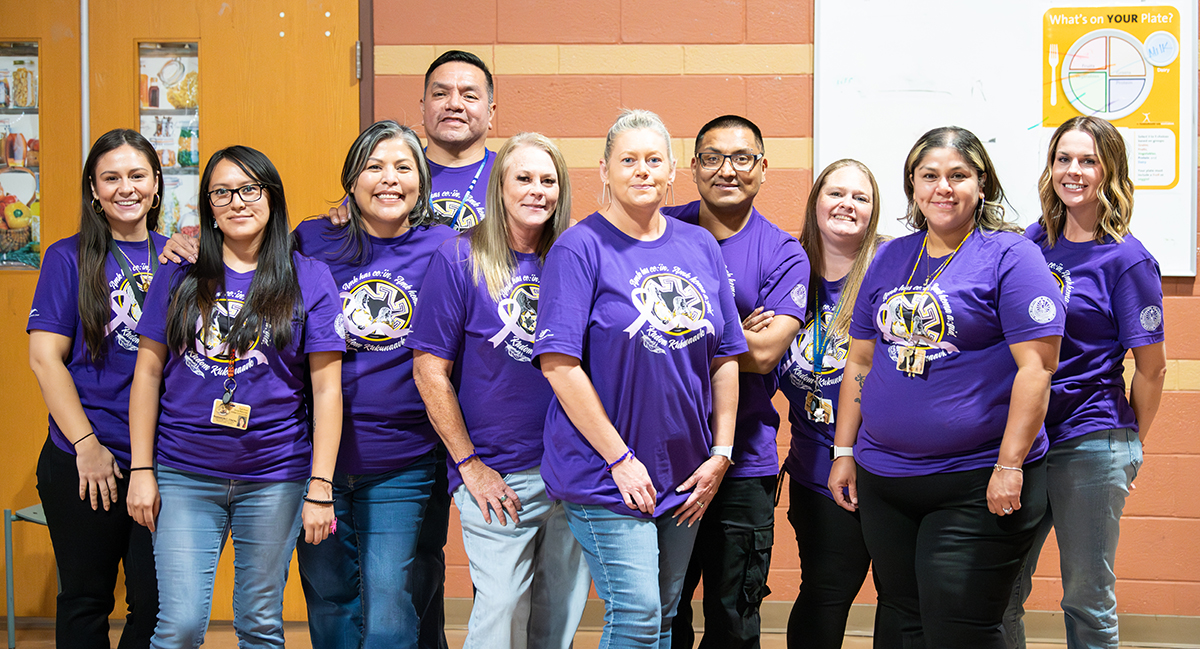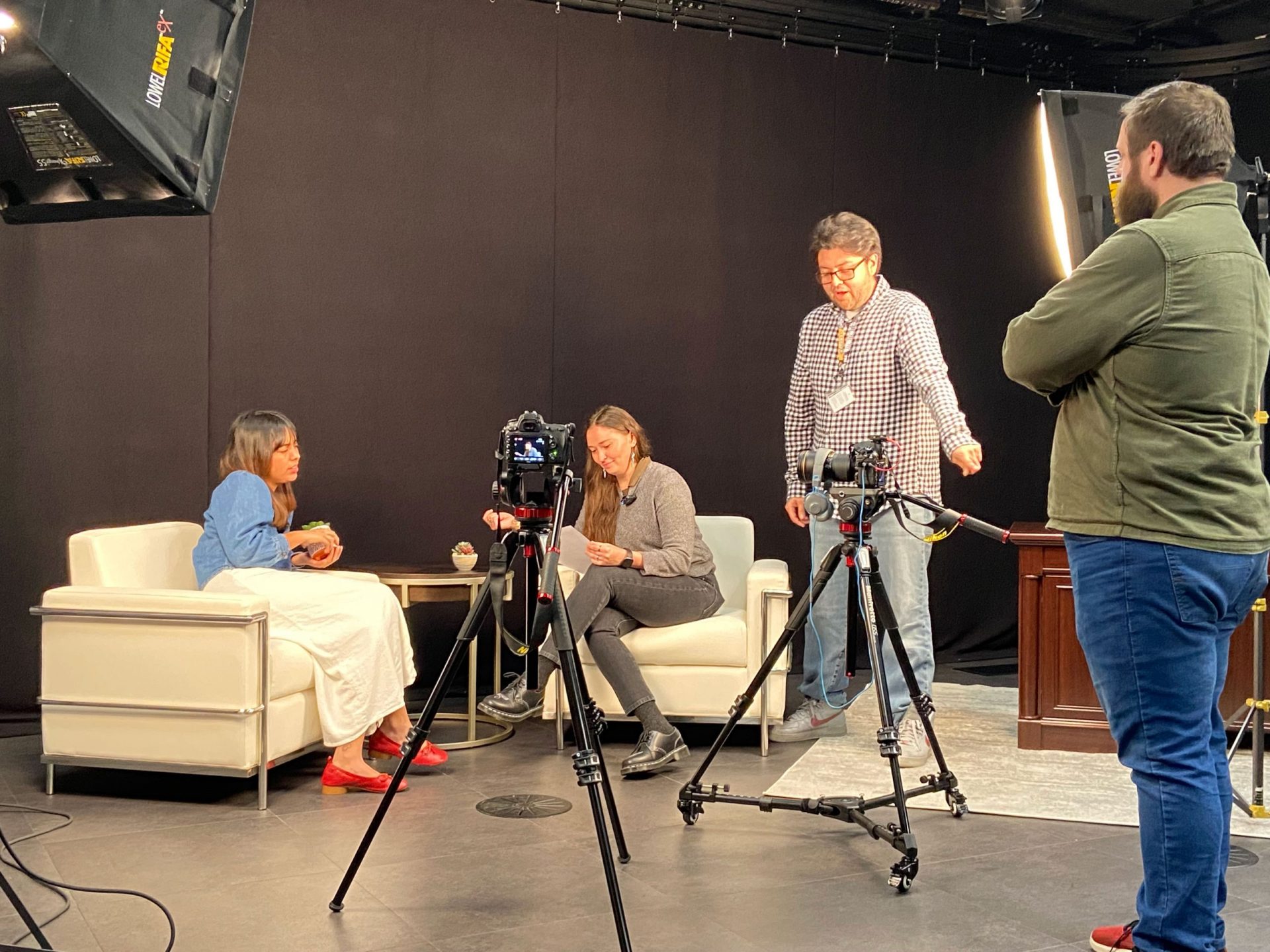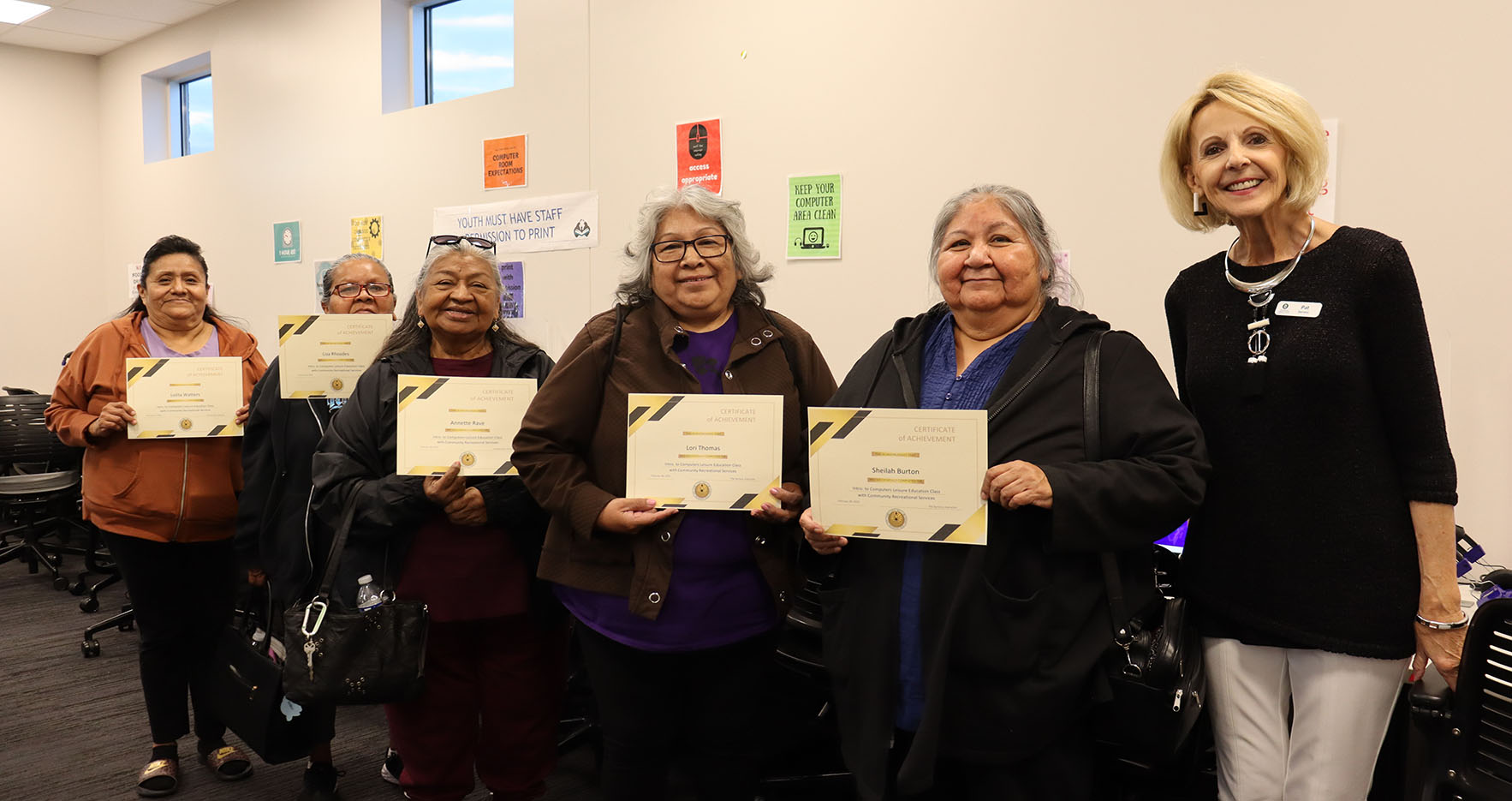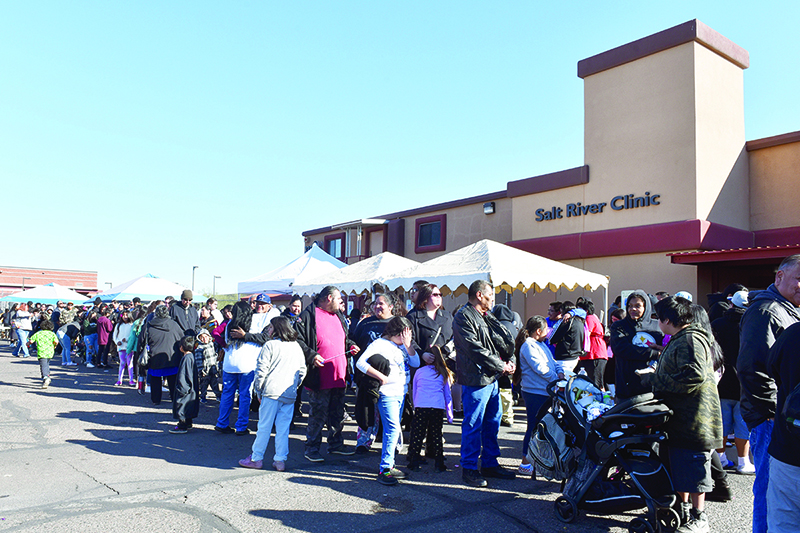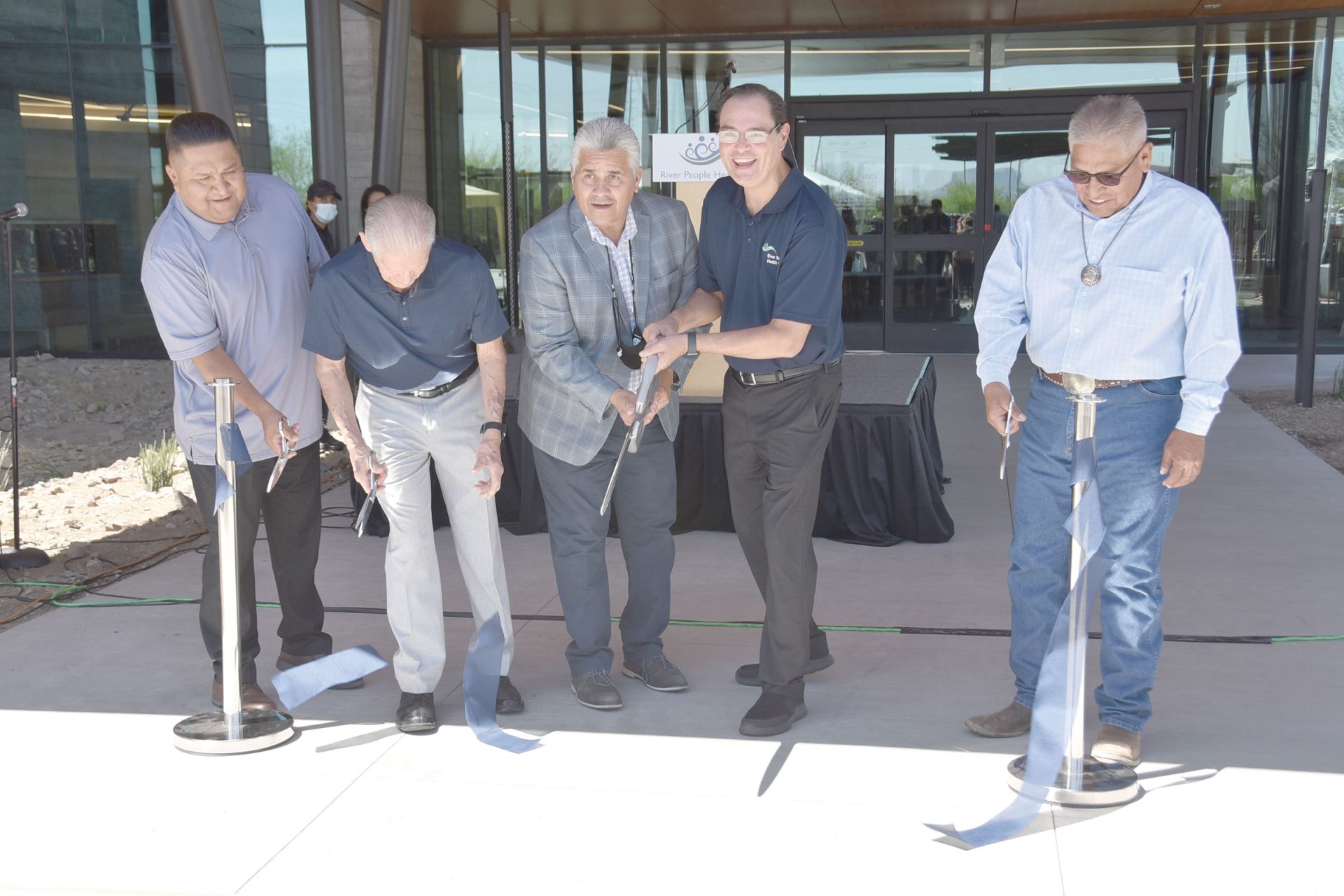VIEWS: 1242
December 4, 2024Victims Advocates Urge Community to ‘Speak Up, Tell Someone’ | Amk has ce:’in, Amk hem a:gid | Kadom Kukunaavk
For victims’ advocates Rosa Cruz and Shanna Stewart, domestic violence isn’t a private issue, but a community issue. One in four women and one in 10 men experience domestic violence at some point in their lives. What’s more unsettling, these statistics reflect only the cases that are reported.
Many times, the thought of domestic abuse brings to mind only the physical, but it can take many forms, including emotional, mental, sexual, financial and verbal abuse.
None of them are easy to talk about.
That’s a big part of why Stewart and Cruz believe events like the Domestic Violence Seminar hosted on October 25 at the ALA cafeteria are necessary for those experiencing domestic abuse—so that they know they can come forward, and that the Community is here for them.
At the event, information booths lining the hallway outside the cafeteria had gifts for mental health support and resources for attendees, and a meal was provided by Julio’s Too Mexican restaurant. After dinner, families in attendance were advised that they may take their children from the room at any time if they felt the topic was becoming too upsetting.
The seminar was divided into a series of presentations covering the cycle of abuse, the role of power and control in the tactics of abusers, how domestic violence cases are handled from a law enforcement and legal system standpoint, and the experience of domestic violence through the eyes of a child.
The impact of witnessing such traumatic events cannot be overstated when it comes to children. A child who witnesses domestic violence is experiencing a form of child abuse because of the emotional and psychological trauma of witnessing the behavior. When a child sees this, they learn it. Seventy percent of offenders in treatment for domestic violence witnessed it as a child. The statistics are ugly, and they indicate that when children witness domestic abuse, their risk of cognitive and developmental delays increases significantly as well, leading to further challenges that carry on throughout their lives.
Throughout the presentation, there were drawings for prizes including a Pendleton bag and an iPad to hopefully encourage more participants to attend future events.
Though October’s Domestic Violence Awareness Month has come to an end, the work does not. Events like this become opportunities for open discussion, providing a reference point in conversations so that we as a Community can bring the uncomfortable topic of abuse out of silent shame and into a healing light.
Domestic violence survives in silence. Speak up, tell someone.

